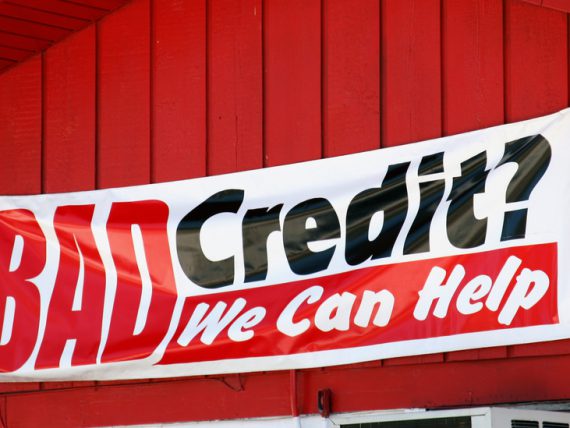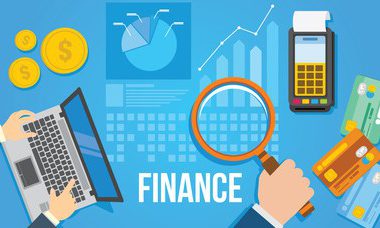
by admin | Bankruptcy, Consumer Proposal, Credit Counseling, Credit Repair, Debt Management

Many people find repairing credit difficult. If you’re one of them then you need to know this: By using the appropriate strategy, you can improve your credit over time but before you start repairing your credit, you must find out how credit repair can benefit you. First and foremost, repairing your credit is absolutely essential if you want to improve your credit situation and avoid drowning in a sea of debt. Secondly, if you go bankrupt, credit repair can shorten the time your credit suffers for, allowing you to quickly rebuild financial stability.
Now, you can either repair/counselling your credit yourself or hire a credit repair/counselling service for that purpose. Regardless of how you perform it, credit repair can benefit you in the long term. Although it costs money upfront, credit repair would save you a lot of money in the long run with less interest rates and so on. So why should you pursue credit repair? Following are three reasons to go for credit repair/counselling.
Eliminate inaccuracies
Eliminating the inaccuracies in credit scores is the main purpose of credit repair/counselling. Credit repair seeks to ensure that your credit score is based on accurate and fair information. Recently revealed stats show that the credit reports of over 70% Americans have some sort of miscalculations or inaccuracy. The miscalculations or inaccuracies are a major reason for poor credit scores. For the reasons just mentioned, credit repair is a good way to get your finances back on track. To eliminate the inaccuracies or miscalculations in the credit report, credit repair identifies mistakes and corrects the ‘inaccurate’ information. This results in an improved credit score.
Lower the costs of insurance
Not many people know this but credit score can have a huge impact on the costs of insurance. Ignoring the impact of your credit on the cost of insurance is something you mustn’t do because if you do that, you’ll end up incurring massive insurance costs. Today, insurance companies determine the premium to charge for coverage by looking at the applicant’s credit reports. In case the applicant has a poor credit rating, he or she may be charged significant premium or worse: denied insurance. By improving your credit rating, credit repair helps you to lower your insurance costs.
Eliminate non-existing debts
Many times, credit reports show non-existing debts i.e. debts that no longer exist. This causes the credit score to suffer unnecessarily. Your overall credit score depends a lot on your income-to-debt ratio. As credit repair eliminates the non-existing debts, you can use it to improve your overall credit score.
As seen above, there are many reasons to go for credit repair. The most obvious reason to perform credit repair is improving credit score. Whether you do it yourself or get help from a credit repair/counselling service, credit repair/counselling is a good way to improve your credit and rebuild financial stability.

by admin | Bankruptcy, Consumer Proposal, Credit Counseling, Credit Repair, Debt Management
 Student debt financial concept as a graduation mortar board on the word for school tuition loan repayment or lending and education financing symbol for university and college students on a white background.
Student debt financial concept as a graduation mortar board on the word for school tuition loan repayment or lending and education financing symbol for university and college students on a white background.
Regardless of the level of credential they earned or type of institution they attended, an overpowering impact is what student loan debt is having on the spending habits and the everyday lives of young people in the United States and Canada. Provided you finance it with your own money, college education is the gateway to a bright career and a handsome salary for the rest of your life. However, if you borrow money for your college education, you may not get to experience the latter.
According to LIMRA, an association of financial services and insurance companies, by the time you retire, student loan can cut more than $300,000 from your retirement savings. In the past two decades, student loan debt has increased significantly. Twenty years ago, the average student loan debt was a little under $13,000. Today, it stands at over $30,000. To find out how student loan debt affects the lives of students, a survey was carried out recently. The purpose of the survey was finding out the personal, emotional, and financial stress caused to graduates by the debt. The survey included over thousand graduates. The results of the survey showed that student loan causes stress and prevents graduates from pursuing their dreams.
The majority of the surveyed graduates said that the debt affected their ability to save for retirement. Other things affected by student loan debt included:
- Taking a vacation
- Mortgaging a home
- Dining out even on a fortnightly basis
- Buying a car
- Getting married
- Starting a family
- Paying daily expenses
- Starting a business
In addition to the aforementioned things, student loan debt was a source of embarrassment for more than 50% of the surveyed graduates. Moreover, the debt impacted the job choices of more than 40% of the graduates. Finally, over 30% of the surveyed individuals said that student loan debt had affected their ability to be social.
For many college graduates, debt is a source of pain. Today, an increasing number of graduates are finding it difficult to pay their loan on time. Over the past decade, negligence on student loans has increased dramatically. In 2005, of all the people in the U.S who had taken student loan, only 7% showed negligence on the loan. In 2015, almost 15% of the graduates with student loan were a minimum of 90 days late on payments.
While student debt can affect you in the aforementioned ways, it is far from being bad. Paying your debt on time will help you to build your credit. Your credit scores will get better as you pay down the debt. To find out how student loan is affecting your credit, request the relevant bureau for a copy of your annual credit reports. Also, you can search your credit scores online to find out how you’re doing in categories such as payment history. In case you’re behind payments, there are many ways for you to get back on track. In short, student loan debt can affect your life but only if you allow that to happen.

by admin | Bankruptcy, Consumer Proposal, Credit Counseling, Uncategorized

It is all too easy to sink deeper and deeper into the proverbial ‘debt trap’ thanks to uncontrolled spending, however, all is not lost as given time as well as life style changes it ‘is’ quite possible to take control of your runaway financial obligations and live a (relatively speaking) debt free life.
But the question remains as to how to go about doing that? A reputable credit counselling service or agency may be able to help. They will both advise as well as educate you and in other ways help you in every way possible to make sure that you not only get out of the ‘proverbial debt trap’ but change your spending patterns to such an extent that it does not happen ever again.
Here are a few tips that, with the active guidance and advice of your chosen credit counsellor that would not only help take care of your problems in the short term but in the long run act as guide posts to make sure you do not repeat the same vicious cycle.
- Houston: We have a problem
When it comes to taking care of runaway debt, you have to look in the mirror and firmly understand that your debts did not accumulate on their own. But rather, they were a direct result of your very own spending patterns. The age old adage of “spend only what you earn yourself” does hold true to this day. Unfortunately, it’s not as easy as it looks, we all have desires and the quest to buy the latest LCD or LED 3D TV on a credit card that you know you are not in a position to afford , may well prove irresistible.
This is where financial discipline comes in, rather than taking a short cut, and using your credit card to buy that TV, it would be more productive to wait and save for it with your own money. (It just might make you feel better about yourself too)
2. No short cuts
You must keep in mind that a credit counsellor is not a magician and once you go to him all your financial problems will vanish like they have never existed. Remember, he is first and foremost an advisor. And ultimately, it is’ you’ who have to follow his advice for it do any good. You may well have to forgo many a luxury before you would be out of the woods.
3. Consult a professional before the problem even occurs
Before making a really large purchase (for example a car), it is advisable to take at least a few sessions with the credit counsellor you are most comfortable with. He or she will help you decide how much you can afford to shell out on credit and how much should be a lump sum payment, so that you don’t end up being at the beck and call of your creditors.
However, it is pertinent to note that ultimately it is ‘your’ personal responsibility to take care of your own loans. Failure to do so would hurt you more than any one else.

by admin | Bankruptcy, Consumer Proposal, Credit Counseling, Uncategorized

You must save more and spend less for a stable and secure financial future for both you and your loved ones” Few of us may not have heard of this well meaning advice given to us by our elders. Yet hardly anyone tends to follow these ancient words of wisdom. Of course, we do tend to give casual lip service to it every now and than, but following this advice is not an easy task per se. That is not to say we don’t ‘try’ to do so every time we are in a jam.
The following few pointers may help launch you on the part to financial solvency.
· If you must use credit cards use the least expensive ones
When procuring a credit card for yourself, shop around first and see which one has the least interest rate. Always remember, that some cards may be more expensive than others since some banks may prove costlier than others depending on the basket of services they provide. Don’t ‘buy’ into the advertising hype but check tariff rates first before acquiring and using a credit card.
· Use credit cards to ‘save’ money
You may also check out the discounts available with your preferred choice of credit card and use the ones that offer you the most discounts. If you use the discounts available with your card to shop at your favourite outlets and pay within the month, you may actually save money even as you are spending it.
· Live a balanced life
Balance is crucial for just about any type of reasonably good lifestyle. From eating to sleeping to working, every thing you do must be in harmony with your inner self and be in balance,. The same holds true for your finances as well. It is always important to save at least some of your earnings every month for the proverbial ‘rainy day.’ The amount may not be very large to begin with, but you have to make sure that your savings are as consistent as they can be and the amount saved is done so month after month. Year after year. Over the years you would have a sizable nest egg that you may be able to invest and so be able to earn from your hard earned savings.
· Debs should be paid of with your earnings
It is always better to buy from your own earnings rather than though credit, but if you have done so, try and tighten your belt and restrict your monthly expenses and pay from your running cash rather than dipping into your savings. This way your ‘nest egg’ remains secure and you would be able to live a relatively stress free life since you would always have more money in your account while remaining debt free.

by admin | Bankruptcy, Consumer Proposal, Credit Counseling, Credit Repair
 Saving is always better than spending if we are to have a viable and secure lifestyle. While most of us certainly do know this age old adage, yet seldom follow it, which unfortunately leads to our very obvious detriment. Yes, most of us have made sporadic attempts at saving our salaries and funds and do manage to do precisely that, only to splurge all over again and its back to ground zero. This holds eve truer if we have just survived a really bad debt trap. Once the debts have been repaid, we make a solemn promise with ourselves to never ever go down that road again. Only to fall down the same slippery slope because not having debts means we are financially free…. Free that is, to incur more debts, that is we go off on a spending binge.
Saving is always better than spending if we are to have a viable and secure lifestyle. While most of us certainly do know this age old adage, yet seldom follow it, which unfortunately leads to our very obvious detriment. Yes, most of us have made sporadic attempts at saving our salaries and funds and do manage to do precisely that, only to splurge all over again and its back to ground zero. This holds eve truer if we have just survived a really bad debt trap. Once the debts have been repaid, we make a solemn promise with ourselves to never ever go down that road again. Only to fall down the same slippery slope because not having debts means we are financially free…. Free that is, to incur more debts, that is we go off on a spending binge.
Think of it alone the lines of eating a healthy diet, till you have achieved your desired weight loss and can put on your old clothes with pride, you keep on dieting with grim determination. Once that has happened, you have no need to diet and you revert to your old eating habits. And before you know it you have ballooned and now pack even more weight than you did even before you started dieting in the first place.
Here are a few pointers to help ensure that you are able to save your money, rather than being in debt.
1. If you have debts, you need to pay them off first thing!
Yes, paying debts is a very, very important part of your financial cycle, but would it not be nicer if you never had debts to begin with? Owing people money and having them ask you to pay back consistently is not really a nice feeling, is it? However, if you have savings, then even if you were in debt all you would need to do would be to dip into your savings and get rid of your debt, once and for all.
2. Save something for a rainy day
Always try and save at least 12% of your total monthly earnings irrespective of what your earning actually may be. Here the key buzz word is ‘consistency.’ If you save for a few months, only to blow away all your savings on the latest model 7.1 surround sound system, than should there be a real emergency that electronic gadget would not be of much use. However, doing so for years would mean a sizable nest egg that you may then invest and thereby earn from your savings. This way, you would be able to buy from the ‘earnings from your savings’ rather then taking loans that you could ill afford to pay.
Conclusion
Yes, it is not easy to curb your expenses and live on only a portion of your earnings, month in month out. You may have to restrict fine dining to a bare minimum and even cut down on your entertainment related activities. But, in the long run, this is the best way to live a relatively debt free life.

by admin | Bankruptcy, Consumer Proposal, Credit Counseling, Uncategorized

Not all of us have what it takes to spend within our means, and therefore before we know it, we are head over heels in debt.
However, there is a way around this problem. And, that is ’budgeting’, i.e. allocating budgets to all your important needs as well as those that are not on the top of the priority list. This way you would be able to make sure that all of your wants and desires are taken care of in order of their priority and nothing is ignored in the long run.
However, budgeting requires a certain amount of discipline and finesse. These are a few tips to help you learn this art:
1. Track your Spending Habits
This step is a sort of ‘prequel’ to budgeting. Before you commence making a budget try and track where all your hard earned money is actually going, remember every single dollar spent has to be clearly noted down, because in the long run, every individual penny eventually adds up. An innate understanding of your day to day expenditures would help you come up with a budget that is based on optimizing your spending patterns. Make sure that before making a budget, you track your expenditures for at least a four week period.
2. Set Realistic goals
When preparing a budget, think along the lines of a diet and exercise regimen. It is easy to make‘plans’regarding healthier eating habits and jogging four miles every day, but executing those plans means a harsh reality check. Even if you manage to do it for a few days, the chances are you will eventually stop. The same goes for your budget. If you curtail the expenses you incur on your hobbies and entertainment almost completely, the odds are you will succumb to your original spending habits in a big way. Try and cut down on your leisure spending by around ten percent per month (instead of going to the cinema three times a week, makes it twice).
Once you have successfully managed that, then make another cut of around the same percentage, and then don’t go below that for at least a few months.
3. Say no to Credit Card Spending
The thing about credit cards is that they allow you to spend money that you don’t really have. Use them often enough, and they are a sure fire recipe for landing you into debt or worse and before you know it, you are more concerned with making minimum payments than with taking care of your actual day to day needs in an attempt to keep the collection agents at bay.
The simplest means of avoiding credit card debt is to refrain from using them in the first place. However, they are indeed handy things to have in case of emergencies. If that is what has happened, make the payment of these cards a first line priority so that you would not be caught in a vicious debt trap.















